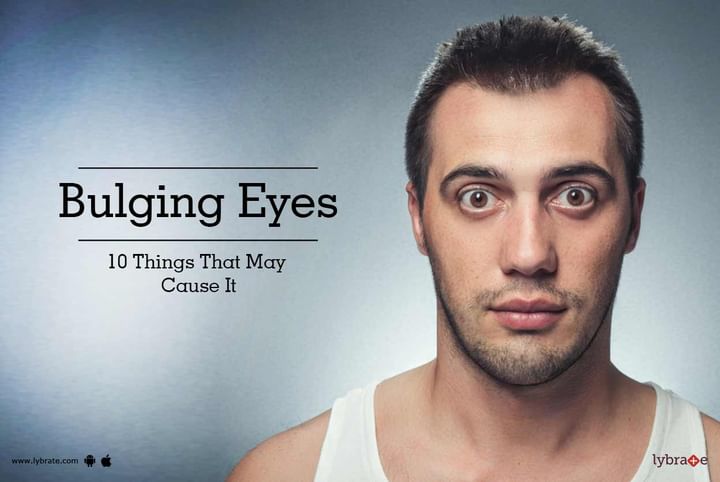Bulging Eyes - 10 Things That May Cause It
There is a marked difference between having big eyes and eyes that bulge abnormally. This abnormality should not be confused with having large eyes. Bulging eyes can be defined as eyes where the white of the eyes is visible above the cornea (circular black portion of the eye). Medically, this is referred to as Proptosis or Exophthalmos.
Eyes protrude from the eye sockets if there is a swelling of muscles, fat or tissue behind the eyes. This is dangerous because it exposes the cornea and makes it difficult for the eyes to stay moist and lubricated. In extreme cases, it can also put the optic nerve under pressure and lead to potential vision loss. This is especially serious if noticed only in one eye.
An overactive thyroid gland is one of the most common triggers for bulging eyes. Another common cause for bulging eyes is Graves disease. Graves disease is an autoimmune condition that makes the thyroid gland release cells and antibodies that fuse the eye muscles. This can directly trigger the condition by inflaming the tissue around the eye or indirectly trigger the condition as it also causes hyperthyroidism.
Other causes for this condition are:
- Any injury that causes bleeding behind the eye
- Vascular Disorders : A build up of blood vessels in the skin or inside the orbit
- Leukemia
- Neuroblastoma or nerve cancer
- Infection
Seeing the white of the eye above the cornea is the most obvious symptom of bulging eyes. Excessive dryness, pain and redness of the eyes are other symptoms of this condition. The patient may also find it difficult to close their eyes completely and have difficulty with eye movements. A doctor may use further blood test and imaging tests to confirm a diagnosis.
Treatment for bulging eyes depends on the condition triggering it. Usual forms of treatment include:
- Eye drops or artificial tears
- Wearing sunglasses
- Corticosteroids
- Chemotherapy or radiation to treat tumors
- Surgery to repair damaged blood vessels
In cases where eyes bulge because of Graves disease, the below forms of treatment may also be used:
- Beta blockers
- Anti-thyroid medications
- Removal of the thyroid gland
- Replacement hormones
- Radiation to lower the functioning of the thyroid gland
- Orbital decompression surgery where one or more eye socket walls is removed
If you wish to discuss about any specific problem, you can consult the doctor and ask a free question.



+1.svg)
